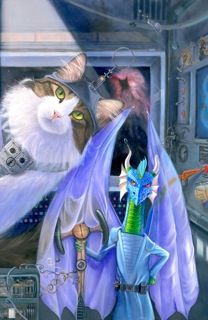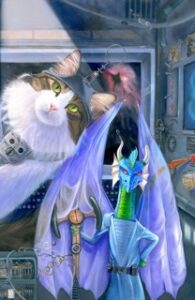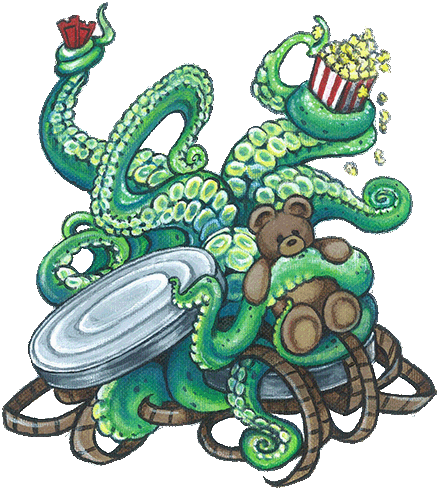…Levierre, with an action-packed cover full of aliens.
Levierre was the clear winner in the 99designs poll, in which over thirty people participated, and was my favorite, too. This cover will be used for both the ebook and paperback editions of my soon-to-be-released book Enemy Immortal.
Here is how the 99designs.com contest worked:
First I had to set up a contest. I described what I wanted and offered a prize for the best design. I wanted a cover for both an ebook and a paperback. I had a book blurb and some general ideas that might work, so I put those out. And I had to estimate the number of pages for the paperback since I hadn’t formatted it yet. This turned out to be the only glitch farther along. My page estimate was quite a bit off, and we had to change the spine size after everything else was over.
But back to the process. There are three levels of prizes, and three levels of designers, with only top designers allowed to compete for the top prizes. My budget suggested using the lowest level of prize, open to any designer. I figured this would be worth it since my alternatives were to find a designer with whom I had no history or try to do it myself. I took the plunge and attracted about thirty designers, who were split between entry-level and mid-level in their 99designs rating.
In the first round of the contest, any of the freelance designers on 99designs could offer a design concept. I gave many of them feedback and soon discovered which designers were easy to work with. I ended up with eight great designs, but I could only take six of them into the second round. I used the poll feature which 99designs provides and reached out to some writer friends for their input. The lowest two designs were eliminated.
The second and final round allowed me to work with the six finalists to further refine their designs.
Now the hard part–I had to pick just one.
First, I did a secret, subjective rating of how easy I found each of the designers to work with. Three of them rated terrific, and three of them only fair. Then I set this aside to use as a tie breaker if need be. The main criterion would be the best design.
I ran another poll with the six finalists and reached out to all my facebook friends to participate. A big THANK YOU to all of those who responded. Levierre was the clear winner.
The final stage of the contest was to declare the winner and obtain the source files for the cover design. This went smoothly except for the part where I found out my page-count estimate was off. Fortunately, Levierre was one of the “easy to work with” designers and quickly updated the paperback cover to fit the book properly. Now it’s (almost) ready to go. I can’t wait to have a proof copy in my hands early next week.






